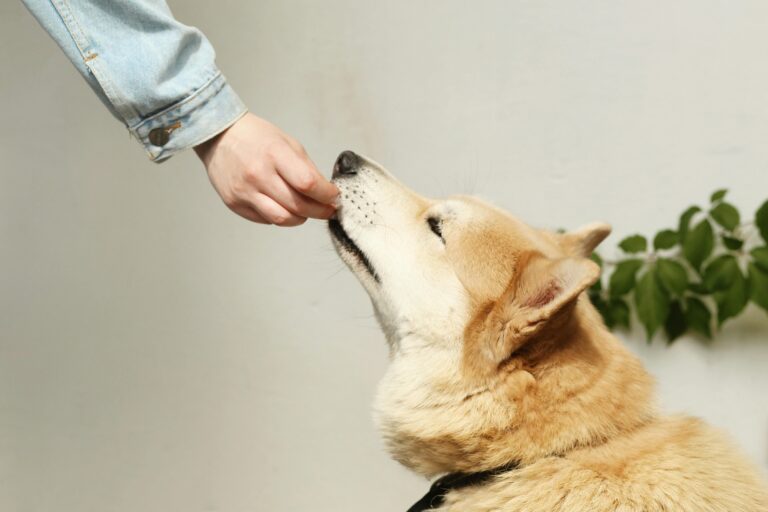Obedience training isn’t a one-time event. It’s a journey that evolves as your dog grows from a playful puppy into a calm adult and eventually into their golden years. Each stage comes with its own joys, challenges, and training opportunities.
At Off Leash K9 Training Houston, we’ve helped thousands of families navigate these transitions with confidence. This guide will walk you through obedience training at every stage of life, offering insights, practical tips, and professional recommendations to make your training journey successful and rewarding.

Puppyhood (8 Weeks – 6 Months): Building the Foundation
The puppy stage is the most important window for training. Young dogs are like sponges, eager to learn and highly adaptable.
Training priorities:
- Housebreaking: Use consistent potty schedules and crate training to establish routines.
- Basic commands: Start with sit, down, come, and place.
- Name recognition: Teach your puppy to respond consistently when called.
- Socialization: Safely expose your puppy to new people, dogs, and environments.
- Handling and grooming prep: Touch paws, ears, and tails gently to build tolerance.
Tips for success:
- Keep sessions short (3–5 minutes).
- Use high-value rewards for motivation.
- Focus on positive reinforcement and clear communication.
Puppies that learn structure early are less likely to develop problem behaviors later.
Adolescence (6 – 18 Months): The “Testing” Phase
Teenage dogs can be challenging. Hormones, growth spurts, and curiosity often lead to pushback. This is the stage when many families call us for help.
Common challenges:
- Ignoring commands they once knew
- Jumping, pulling, or testing boundaries
- Increased energy and independence
- Possible reactivity around other dogs
Training focus:
- Reinforce basic commands with distractions
- Begin structured leash training and recall practice
- Correct jumping and impulse-control issues
- Introduce advanced skills like “off-leash recall” or extended “place”
Consistency is critical during this stage. Our blog on why marker words matter in dog training explains how clarity and timing can prevent confusion and power struggles.
Adulthood (18 Months – 7 Years): Refinement and Reliability
Adult dogs are at their peak physically and mentally. With maturity comes the ability to focus for longer periods and truly master advanced obedience.
Training goals:
- Reliable recall in all environments
- Off-leash control and advanced leash manners
- Integration into family activities and public outings
- Refinement of commands like heel, stay, and drop it
- Continued socialization to prevent regression
This is also the ideal stage to layer in enrichment through activities like agility, scent work, or advanced obedience games. Training keeps the adult dog’s mind sharp and provides much-needed physical outlets.
Our Basic & Advanced Obedience Program is designed for exactly this stage, ensuring dogs not only know commands but perform them reliably under real-world distractions.
Senior Years (7+ Years): Training for Comfort and Longevity
Older dogs may not need high-energy activities, but obedience training remains just as important. Seniors benefit from mental stimulation, gentle exercise, and clear communication.
Training priorities:
- Reinforce known commands to keep skills fresh
- Adjust exercises for mobility or hearing loss
- Introduce hand signals for aging dogs with reduced hearing
- Use shorter, more frequent sessions to prevent fatigue
- Focus on calm behaviors like place and down-stay for comfort
Why it matters:
Training provides mental engagement that keeps senior dogs sharp. It also strengthens the bond between you and your dog during their golden years.
Common Training Mistakes at Every Stage
Regardless of your dog’s age, some training mistakes can undermine progress:
- Inconsistency: Using different cues or rules confuses your dog.
- Lack of patience: Training takes time and repetition.
- Skipping reinforcement: Even adult dogs need praise and rewards.
- Over-reliance on corrections: Dogs learn best through clear communication and balance.
Avoiding these pitfalls ensures smoother progress throughout your dog’s life.
Reinforcing Training During Busy Seasons
Life gets hectic, but obedience doesn’t have to slip. Incorporating short, daily practice sessions keeps skills sharp. We share practical strategies in our blog on how to reinforce training while camping or traveling, which apply just as well at home.
Professional Training Support
No matter the stage, professional training can provide clarity, accountability, and faster progress. Puppies need structure, adolescents need consistency, adults need refinement, and seniors need adaptation.
According to the ASPCA’s general dog care guide, structured training is one of the most important aspects of lifelong canine wellness. Pairing that with professional guidance ensures your dog thrives at every stage.
Final Thoughts: Training Is a Lifelong Investment
Obedience training isn’t just about commands. It’s about building a relationship built on trust, respect, and communication. From puppyhood through senior years, each stage is an opportunity to strengthen your bond and enrich your dog’s life.
Ready to invest in your dog’s obedience at any stage of life?
Whether you have a playful puppy or a wise senior, our trainers are here to guide you. Contact us today and let’s build the foundation for a lifetime of success.

